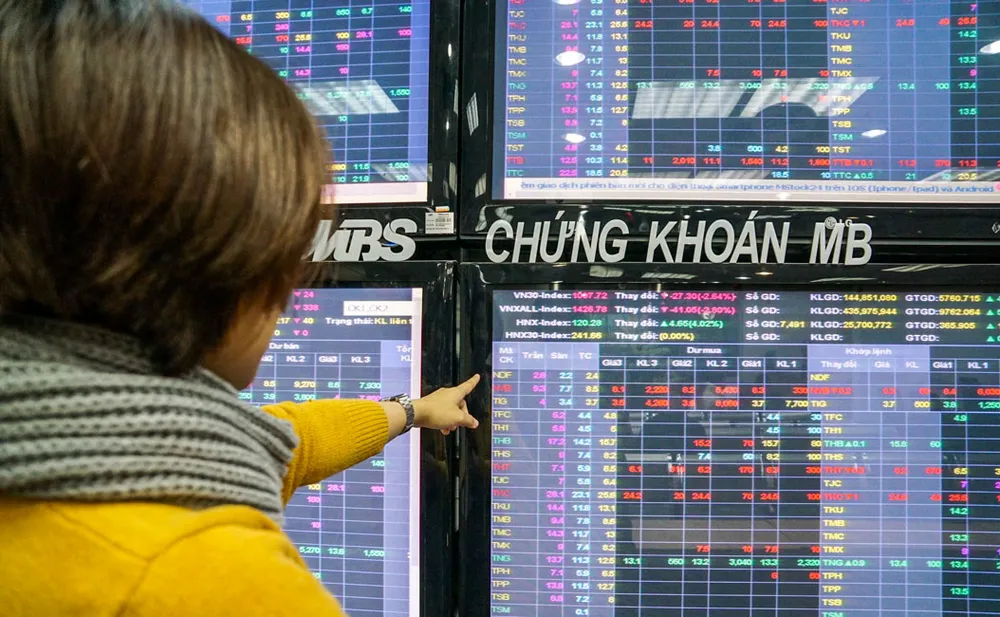
Unexpected events
The most popular story circulating in the last few days has been that of an investment advisory exposed when swinging at the top of F0 stocks. This conveyed a deep knowledge to new investors. Of late there have been some shocking and unexpected events beyond the control of anyone. This has been evident when the Chairman of FLC illegally sold shares or in the case of the Tan Hoang Minh group suddenly giving up their stake after they won the auction bid for the biggest holding in the Thu Thiem New Urban Area. These events are believed to have sparked the current wave of sell-offs in speculative stocks.
However, such occurrences are nothing new. For investors who have years of experience on the floor of stock markets, such ups and downs have happened on many occasions as human psychology and human greed overpowers rational decisions. In 2008, from June to the last week of August, the stocks of VSP also increased nearly six times, then six months later they were returned. Up until now, no stocks have surpassed the record strongly in such a short time. Many retail investors have been trapped by greed. Also, during the period 2008 to 2009, the number of investors on the stock market were too few, and the average transaction value was only VND 800 to VND 1,000 bn per day. Now, the transaction value is VND 30,000 to VND 40,000 bn, with 20 times more accounts.
The wave of selling off many speculative stocks is causing huge losses for investors who swing to the top. Statistics on HoSE in the last 30 sessions show there have been 140 stocks that are losing 20% or more from the highest peak price, with 11 stocks losing more than 40%. It is not surprising that the big names are leading the losses, such as ROS with a loss of 46.8%; FLC with a loss of 46%; LCM with a loss of 44.7%; HAR with a loss of 44.4%; and CKG with a loss of 33.6%; AMD with a loss of 43.2%; and two others with a loss of 43%. As of 19 January, there are still around 50 stocks that will see losses.
When the speculative wave in August 2021 peaked from November to December, experienced investors saw an inevitable outcome, but the advice or analysis warnings fell to deaf ears. Speculators who saw big profits every day felt on top of the world. This feeling is nothing new, as almost anyone entering the market will go through a period of such illusionary confidence. The advice given by experienced investors is really meant to caution new investors to avoid losses. F0 investors would be wise to take heed from investors with many years of experience on the stock markets.
Value of experience
Many investors are interested in short-term speculation and want to make quick profits, but they do not prepare the necessary tactics. Stock speculation has never been a cake walk, but is actually a non-stop battle each and every day. One person's victory is another person's loss. Reading financial statements, viewing technical analysis charts are only part of the professional skills for professional investing. Book learnt skills such as portfolio management, risk management, position management, how to stop losses, take profits, how to determine target price, are given in many books and cost only a few hundred thousand dong.
However, there are very few books that teach investors how to avoid panic when stocks hit the floor, lose liquidity, and evaporate 7% to 10% off their account in a day, or how to control greed, and how to move far away from the crowd that is frantic for profit. Also, no book teaches us how to tell whether a profitable trade is due to luck or talent, or how not to blame others for a loss. Such lessons can only be learnt from many years of failed experiences and self-awareness. Not everyone is suitable for a career in stock trading, if they really want to invest professionally and make a living.
Stock investors around the world know the story of training stock traders like raising turtles, written in the book "Turtle Trader" by two famous commodity investors in the 1980s. Detailed trading instructions are no secret, but not everyone can succeed. This is to say that whether investment methods or trading skills are effective or not, they still need discipline and experience.




















